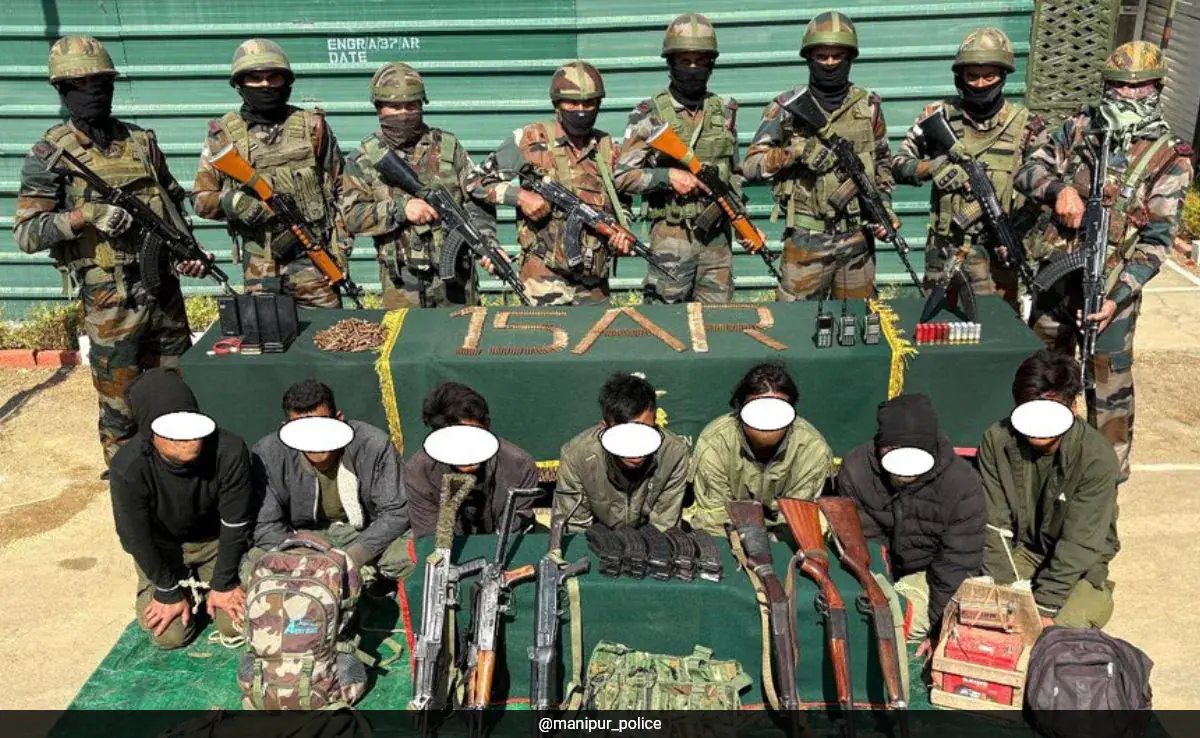Four civil society organisations from Meitei, Thadou, Naga and other communities alleged Kuki armed groups protected by the SoO agreement "are gravely undermining safety and security of all communities in Manipur".
The civil society organisations from different communities in Manipur have for the first time made a united call against extending what they called a "flawed and violated" tripartite agreement signed between 25 Kuki, Zomi and Hmar insurgent groups and the Centre and Manipur government.
The civil society groups' charter of demands include ---
Establishing of an independent and neutral arbitrator in case of conflict of interest under the Constitution.
The armed militants who committed acts of violence should be prosecuted according to the law, and if any signatories or members of KNO and UPF are found to be associated directly or indirectly, they should not be protected under the SoO agreement.
The SoO agreement should be considered as a mechanism for non-violence and not as a protector of violence.
** Abrogate SoO agreements as recommended by the last Manipur state government, or establish a popular government or conduct re-election in Manipur to ensure the elected state government can recommend renewal of the SoO agreement.
** If the SoO agreement is to be renewed, then the structure and framework of the agreement should be holistically reviewed for effective and efficient implementation.
While the Meitei Alliance, a global umbrella body of civil groups of the Meitei community, and the Thadou Inpi Manipur, a body that represents the indigenous distinct Thadou tribe, have been asking the Centre to scrap the controversial suspension of operations (SoO) agreement with the 25 insurgent groups, two more top civil society organisations of the Naga tribes and other indigenous communities have come forward in demanding the same.
The four civil society organisations made a joint representation to Union Home Minister Amit Shah pointing out that the insurgent groups have been persistently violating SoO ground rules. Broadly, under this agreement, the insurgents have to stay at designated camps and keep their firearms in locked storage, to be jointly monitored with the security forces. They cannot recruit fresh insurgents too.
The four civil society organisations, however, alleged these armed groups protected by the SoO agreement "are gravely undermining safety and security of all communities in Manipur."
The preamble of the SoO agreement state that KNO and UPF will completely abjure the path of violence and will not engage in violent or unlawful activities like killing, injuries, kidnappings, ambush, extortions, intimidations, carrying of arms in public and imposing of 'tax' or 'fines', the civil society organisations said in their memorandum submitted to Mr Shah.
Therefore, it establishes that the purpose of SoO agreement is to maintain law and order, which is a State subject under the Constitution (List II, State List), they said.
In August 2008, a tripartite suspension of operations (SoO) agreement was signed between the Government of India, Government of Manipur and 25 Kuki militant organizations to establish a ceasefire. The agreement lead to a ceasefire and laying down of arms by Kuki militant groups and began the process of negotiations.
The other two civil society organisations are the Foothills Naga Coordination Committee, and the Indigenous Peoples' Forum Manipur.
The 25 insurgent groups come under two umbrella organisations for the purpose of negotiations - the Kuki National Organisation (KNO) led by the Kuki National Army (KNA), and the United People's Front (UPF) led by the Zomi Revolutionary Army (ZRA). The KNO and the UPF representing all the others have signed the SoO agreement.
The SoO agreement is steered by a joint monitoring group (JMC) which also takes a call on whether to extend it or not.
"... On one hand, the SoO agreement states that the Manipur government can terminate and take appropriate action against the KNO and the UPF. In case the groups are found violating the ground rules, the state government on the recommendation of the joint monitoring group may terminate the SoO arrangements and also take appropriate action including use of force against the groups," they said in the memorandum.
"However, on the other hand, the SoO agreement establishes a joint monitoring group that includes the very groups responsible for violence - KNO and UPF - who are expected to recommend to the state government whether action should be taken against themselves," the memorandum said, pointing out what they called an inherent flaw in the controversial arrangement.
They said the purpose of the SoO agreement is to maintain law and order in Manipur, and it is the state government that should be responsible for maintaining law and order; however, due to the flawed structure of the SoO agreement, the state government is unable to do so.
"Therefore, the SoO agreements cannot be renewed or extended unless recommended by the elected state government of Manipur, and not in the current structure and form of the agreements," the civil society organisations said in the memorandum.







No comments:
Post a Comment